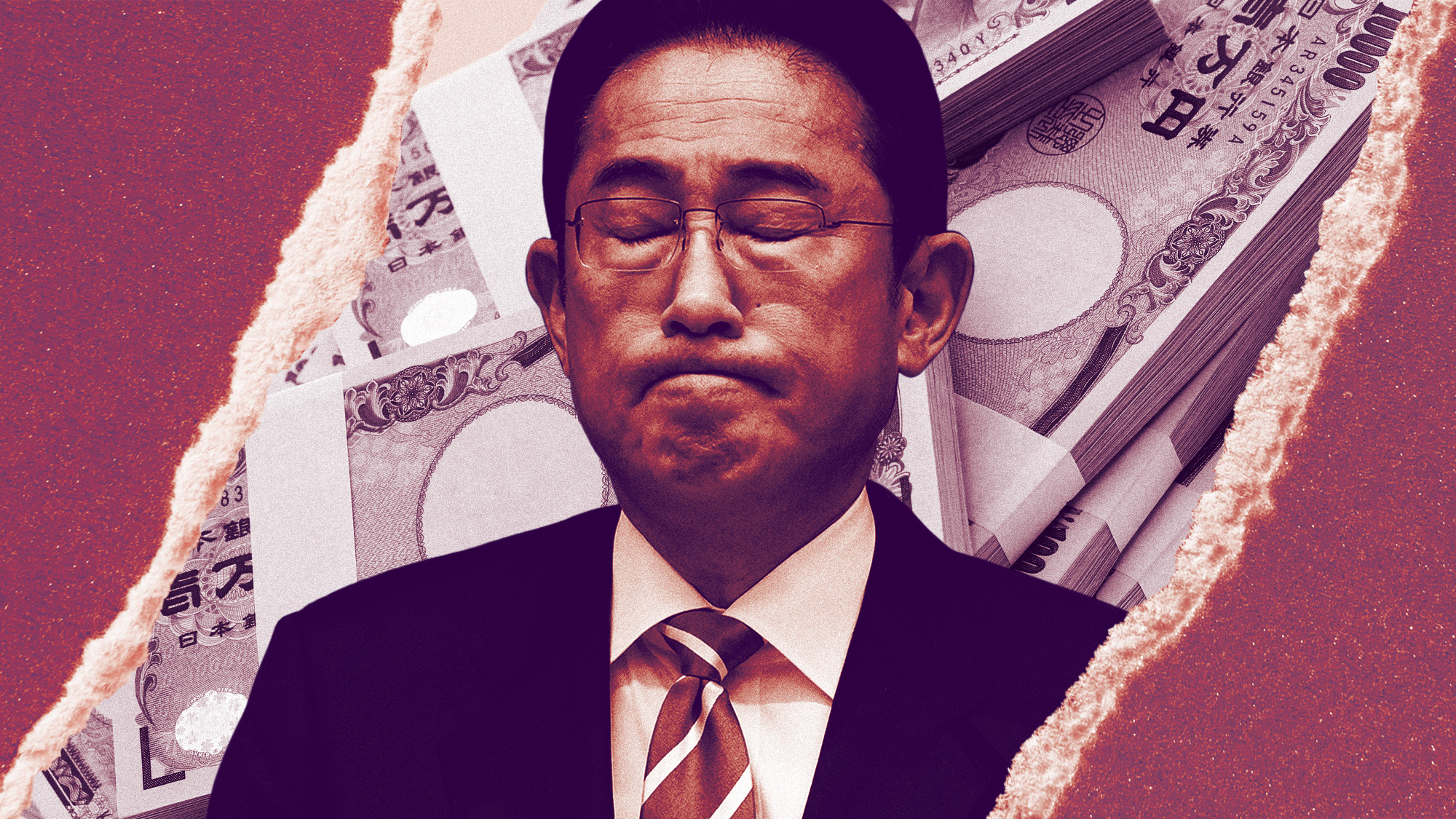The corruption scandal tearing apart Japan's ruling party
Prime Minister Fumio Kishida has been at centre of country's 'biggest financial scandal in decades'

A free daily email with the biggest news stories of the day – and the best features from TheWeek.com
You are now subscribed
Your newsletter sign-up was successful
Japan's prime minister Fumio Kishida has promised to address a financial scandal that has rocked the nation's ruling party and is threatening to destroy his chances of a second term.
Revelations of undocumented money raised on behalf of the Liberal Democratic Party (LDP) have created the country's "biggest financial scandal in decades", said The Economist.
As he struggles to clean up the LDP's image, Kishida has apologised for the erosion of public confidence in his party and said it "must change". He recently vowed to act "like a ball of fire" in tackling the issue – but have his contrite words come too late to save his skin?
The Week
Escape your echo chamber. Get the facts behind the news, plus analysis from multiple perspectives.

Sign up for The Week's Free Newsletters
From our morning news briefing to a weekly Good News Newsletter, get the best of The Week delivered directly to your inbox.
From our morning news briefing to a weekly Good News Newsletter, get the best of The Week delivered directly to your inbox.
'Stuffing their pockets'
The LDP has been in power for most of the country’s post-war history, meaning that "jockeying for power" takes place within the party rather than outside it, said the Financial Times (FT). Most members are in one of the major factions that act as parties within the party, raising their own funds and promoting their members for ministerial positions.
LDP factions have been accused of "systematically under-reporting" ticket sales at fundraisers and "kicking back the proceeds to members", said The Economist. In total, they are accused of falsely reporting about ¥970 million (£5.2 million) between 2018 and 2022. Most of the allegations surround the Abe faction, named after the former prime minister Shinzo Abe, who was assassinated in 2022.
After a string of political scandals in the 1980s and early 1990s, corporate donations to individual parliamentarians were banned, so factions began to raise cash through fundraising parties. A long-running practice has seen factions set quotas for MPs to sell tickets for the fundraisers and then return some of the money raised to those who exceeded their quota. "Pocketing the difference is not itself illegal," said the FT, but failing to properly report the payments is "punishable by up to five years in prison".
Ironically, the revelations emerged just as the government has been "pushing for greater transparency in the private sector, through a strict new tax-invoicing system and corporate-governance reforms". So the public has been "enraged" to discover that politicians were "stuffing their pockets" at the same time, said The Economist. Public anger and outrage has "boiled over on social media", added the BBC.
A free daily email with the biggest news stories of the day – and the best features from TheWeek.com
The consequences have already been far-reaching. Since the scandal emerged in November, 10 people associated with the ruling party have been indicted and four cabinet ministers have been sacked. The "drumbeat of cases" has "kept the pressure" on Kishida, said the FT. In December, disapproval of his administration reached a record high of 79% and had improved to only 72% in January.
The "extent of alleged involvement by cabinet ministers and senior party officials" has "invited comparisons with the so-called Recruit affair of the late 1980s", said Time. Back then, allegations of insider trading "felled" Prime Minister Noboru Takeshita and led to an upper house election defeat.
'Creaking' leadership
The party might survive the current scandal but its leader is significantly more vulnerable. With "opposition parties in disarray", the LDP's grip on power is "probably secure", said The Economist, but Kishida's leadership is "creaking".
His chances of survival may "hinge" on "good news emerging from Japan’s annual wage negotiations" in March, a state visit to the White House in April and a package of tax cuts due to take effect in June, it added. But he will "still struggle" to win re-election as party president when his term ends in September.
Meanwhile, although Kishida has announced the dissolving of his faction and established an internal task force to make reforms, half of its members are linked to the scandal, "raising questions about how much it can achieve", said The Associated Press.
There is a "general voter resentment and malaise over the cost of living crisis as households deal with a decades-overdue surge in inflation", said the BBC. So public patience is wearing thin.
Chas Newkey-Burden has been part of The Week Digital team for more than a decade and a journalist for 25 years, starting out on the irreverent football weekly 90 Minutes, before moving to lifestyle magazines Loaded and Attitude. He was a columnist for The Big Issue and landed a world exclusive with David Beckham that became the weekly magazine’s bestselling issue. He now writes regularly for The Guardian, The Telegraph, The Independent, Metro, FourFourTwo and the i new site. He is also the author of a number of non-fiction books.